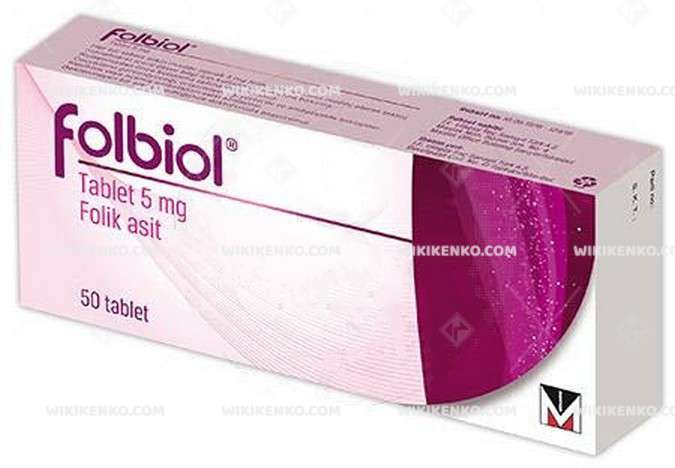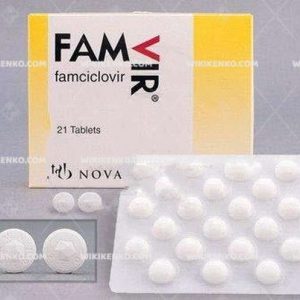Folbiol Tablet
Folbiol is a water-soluble B-complex vitamin, also known as folate or Vitamin B9. It is an essential cofactor for enzymes involved in DNA and RNA synthesis, and can be found in foods such as liver, kidney, yeast, and leafy green vegetables.
| Dosage form | |
|---|---|
| Pack size | |
| Potency | 5 Mg |
| Manufacturer | |
| Origin | |
| Generic Name (Ingredient) | Active Substance: Each Tablet Contains 5.0 Mg Of Folic Acid. |
Assuming your emergency circumstances for this product, visit Urgent Quotation page. Besides, for any pharmaceutical questions, please ask us in the comments section.
Description
Usage
Folbiol is necessary for the production of certain coenzymes in metabolic systems, including purine and pyrimidine synthesis. It is also crucial in the synthesis and maintenance of nucleoprotein in erythropoiesis. Additionally, it promotes WBC and platelet production in folate-deficiency anemia.
What is it used for:
- Prophylaxis of megaloblastic anemia in pregnancy
- Supplement for women of child-bearing potential
- Treatment of folate-deficient megaloblastic anemia
- Prophylaxis of neural tube defect in pregnancy
- Treatment of conditions such as anemia folate deficiency, folate deficiency, iron deficiency (ID), iron deficiency anemia (IDA), latent iron deficiency, neural tube defects (NTDs), vitamin deficiency, methotrexate toxicity, and nutritional supplementation.
How Folbiol Tablet Works
Folbiol is biochemically inactive and must be converted to tetrahydrofolic acid and methyltetrahydrofolate by dihydrofolate reductase (DHFR). These folic acid congeners are transported across cells by receptor-mediated endocytosis, where they are necessary to maintain normal erythropoiesis, synthesize purine and thymidylate nucleic acids, interconvert amino acids, methylate tRNA, and generate and use formate.
Side Effects
Folbiol Tablet is generally well-tolerated, but some side effects have been reported. Less serious side effects may include nausea, loss of appetite, bloating, gas, a bitter or unpleasant taste in the mouth, sleep problems, depression, or feeling excited or irritable. In rare instances, allergic responses to Folbiol have been reported and have included erythema, skin rash, itching, general malaise, and respiratory difficulty due to bronchospasm.
Conclusion
Folbiol is a necessary vitamin that plays a critical role in many metabolic systems. It is essential for maintaining normal erythropoiesis, synthesizing purine and thymidylate nucleic acids, interconverting amino acids, methylating tRNA, and generating and using formate. Folbiol Tablet is used for a variety of conditions, including megaloblastic anemia, neural tube defects, and nutritional supplementation. While it is generally well-tolerated, it is essential to be aware of the potential side effects. As with any medication, please consult with a healthcare professional before taking it.
1 review for Folbiol Tablet
Use the form below to report an error
Please answer the questions as thoroughly and accurately as possible. Your answers will help us better understand what kind of mistakes happen, why and where they happen, and in the end the purpose is to build a better archive to guide researchers and professionals around the world.
The information on this page is not intended to be a substitute for professional medical advice, diagnosis, or treatment. always seek the advice for your physician or another qualified health provider with any questions you may have regarding a medical condition. Always remember to
- Ask your own doctor for medical advice.
- Names, brands, and dosage may differ between countries.
- When not feeling well, or experiencing side effects always contact your own doctor.
Cyberchondria
The truth is that when we’re sick, or worried about getting sick, the internet won’t help.
According to Wikipedia, cyberchondria is a mental disorder consisting in the desire to independently make a diagnosis based on the symptoms of diseases described on Internet sites.
Why you can't look for symptoms on the Internet
If diagnoses could be made simply from a textbook or an article on a website, we would all be doctors and treat ourselves. Nothing can replace the experience and knowledge of specially trained people. As in any field, in medicine there are unscrupulous specialists, differences of opinion, inaccurate diagnoses and incorrect test results.




Salome –
can I take it while pregnant?
Medical Guidance Center –
Hello Salome, this is WikiKenko.
Folbiol is available as an over-the-counter supplement, it can be taken during pregnancy. In fact, it is recommended to take a 400 micrograms Folbiol tablet every day before you’re pregnant and until you’re 12 weeks pregnant. The recommended daily allowance of Folbiol during pregnancy is 400 to 800 mcg/day.
However, it is always a good idea to consult with a healthcare professional before starting any new medication or supplement to ensure that it is safe and appropriate for you and your child.